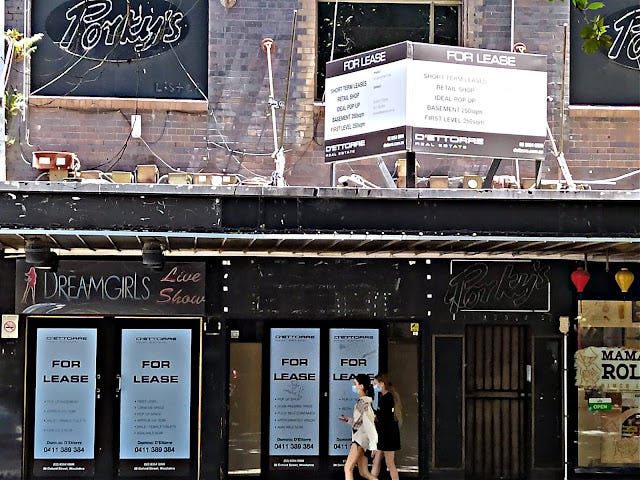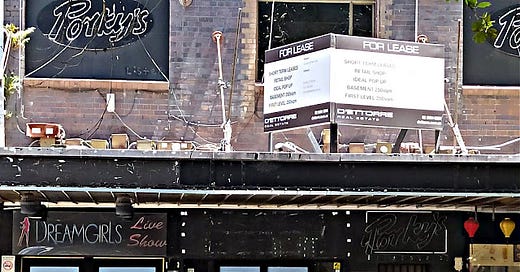
There they were then: the cinders of lost views. Confused messaging. Everything left high and dry. Cinder burnt, those exterminated places there on the edge of town. Laid waste. The edges, the siren calls, sad laments, of civilisations long passed into history. If they say love is eternal, what happened to all those wet dreams and human entwinings, what happened to the hope that all would come good, that we would deliver a message of salvation and hope. For a planet you yourselves had wrecked.
Yes, "the gods" had played an interest in this planet for a very long time, for a very good reason; not least its staggering beauty and immense fertility. Our dreams had come true in the wildest of senses; beyond our hopes. But now, hear, you had to realise that time was also distant for us. That your home, our home, had seen a billion years pass. That you weren't the only ones. And no, you were not central to God.
But all these musings in the buzzing light, it went nowhere.
We came only at special times. You knew, now, how it had been done.
The frontiers of science were not the frontiers of humanity.
We hadn't been human in your sense.
What staggered him the most was the compliance of the population. They acted as one, submissive, unintelligent, easily led, and they acted out of self interest, perhaps like all living organisms, but the societies they built, where was the joy in it? Why had they been so cruel to be kind?
"We haven't always agreed about things," one of the operatives said in a massive understatement, in a revolt against surveillance which had curdled his dreams and ramped his nerves, and kept going round and round in circles, because we were making snail trails through history.
Increasingly he wanted to know: "Why do I care? Why would I care? Nobody else seems to."
He wasn't on the same page. He was confronted by things he was still trying to understand, as they formed safe places in a technology new to these people, as it folded out through mobile services and tried to reach something, somebody, a voice that would tell them all was sane and all was well; and explain everything.
The explanation was simple enough when you got your head around it.
The worst or amongst the worse travel restrictions in the world meant essentially Australia was an experimental pond floated off into a gathering storm of Covid stupidity.
People believed anything.
A government which had delivered the worst internet in the world, the highest electricity prices, a country with zero social cohesion and a welfare system that was eating itself alive, as the parasites at the top of the pile, the nation's plutocrats and oligarchs and fawning, utterly corrupt, utterly dysfunctional and utterly discredited politicians joined in a race to the bottom.
"Something is rotten in the state of Denmark."
They were destroying the country and nobody seemed to care.
"I'm alright Jack," the typical self-deprecating way old fashioned Australians referred to themselves, was at the forefront of this circuit breaking hack. They wanted to be mean. They were soldiers after all. They were trained to kill; to cooperate and survive in difficult circumstance, to regard civilians as strangers, or enemies.
The inflamed state of mind into which he entered was geospatially linked, and the recent rift, Tahm Peet, Mistake, was making things less fluent, even in conquered territory.
He listened to the world crawling around him, the sublimated dreams and quiet lives; he was astounded that no one cared; that the population's liberties were removed and they accepted it, just like that.
Australian democracy had long been a sham, destroyed by the unparalleled greed of the most destructive wing of the conservatives; the corporate crooks. Plunder the poor, give to the rich. How often did he have to say it before these shameless people, high on the hog of other people's taxes, surviving on their own shameless lack of guilt. Integrity; they had no idea. But even the dumbest of them must have been able to see how crooked they were. How the merchants just weren't in the temple, they were corroding the walls, eating the lice off the floor, consuming the country so there would be nothing left.
This unalloyed greed, this corporation welfare dished out by a truly dishonest government to all their rich mates, this destruction of a fair go, of the once egalitarian nature of the country, was truly shameless in its intensity.
What did they think? They would be happy inside their gated estates?
That the howling mobs would never get to them?
That the spiritual stain of their own malpractice would not haunt them into unhappy graves?
They, with their smooth hands and plump physiques, their sheer, total and complete dishonesty, just politics after all, lying to the people, massaging the public narrative, foisting brutal inequalities and injustices onto them because, well, money was money, prosperity theology was a right for the righteous, and the wicked, that is the workers, would need to learn to submit, surrender, and serve.
Good luck with that.
THE HEADLINES
Nigel Farage: Donald Trump would have ‘won by a landslide’ if it wasn’t for COVID-19
Reform UK leader Nigel Farage says President Donald Trump’s greatest legacy will be his unbroken election promises, and added if it wasn’t for the coronavirus pandemic he would have “won by a complete and utter landslide”. “Trump’s legacy, his biggest and most important legacy was; here was a political leader that ran for office making a series of promises, and you know what, he actually kept them, rather than just lying,” Mr Farage told Sky News.
World facing ‘catastrophic moral failure’ on vaccines: WHO chief
The world is on the brink of a “catastrophic moral failure”, the head of the WHO has warned in a scathing, blunt speech to nations this week.
A court in Thailand has sentenced a former civil servant to a record prison term of 43 years and six months for breaching the country's strict law on insulting or defaming the monarchy.
Key points:
The woman who was sentenced has only been identified by her first name, Anchan, and is in her 60s
Violating Thailand's lese majeste law — known widely as Article 112 — is punishable by three to 15 years' imprisonment per count
Anchan was initially sentenced to 87 years, but the punishment was reduced by half because she pleaded guilty
The Bangkok Criminal Court found the woman guilty on 29 counts of violating the country's lese majeste law for posting audio clips to Facebook and YouTube with comments deemed critical of the monarchy, Thai Lawyers for Human Rights said.
The sentence, which comes amid an ongoing protest movement that has seen unprecedented public criticism of the monarchy, was swiftly condemned by rights groups.
‘Don’t really understand it’: Berejiklian’s swipe at Vic’s border rules
NSW Premier Gladys Berejiklian has taken a swipe at Victoria’s border restrictions, as her state recorded a second consecutive day with no locally acquired COVID-19 cases.
Victoria eased some restrictions on travel from NSW at 6pm Monday, but still rates 10 Sydney local government areas as “red zones” on its traffic-light border control system announced earlier in January.
“First of all, I don’t really understand the traffic-light system, I just want to make that clear,” she said.
“Second of all, I would have liked to have seen that decision taken a long time ago.”
Ms Berejiklian said Victoria’s restrictions meant about one million people in Sydney would still not be able to travel south.
Australia's proposed media code could break the world wide web, says the man who invented it
Tim Berners-Lee says the plan to make Google and Facebook pay for news content undermines the web’s ‘fundamental principle’
The inventor of the world wide web says proposed Australian media laws requiring tech giants Google and Facebook to pay for displaying news content risks setting a precedent that “could make the web unworkable around the world”.
Tim Berners-Lee, who invented the world wide web in 1989, said the draft legislation “risks breaching a fundamental principle of the web by requiring payment for linking between certain content online”.
In a submission to an Australian Senate inquiry on the News Media and Digital Platforms Mandatory Bargaining Code bill, Berners-Lee said the ability of web users to link to other sites was “fundamental to the web”.
Requiring digital platforms to pay to host that link, a world-first provision of the proposed Australian laws, would “block an important aspect of the value of web content”, the computer scientist said.
Berners-Lee argued the proposal “would undermine the fundamental principle of the ability to link freely on the web and is inconsistent with how the web has been able to operate over the past three decades”.
Something is rotten in the state of Denmark. Hamlet. Shakespeare.
On the surface he is saying that something bad is happening in the country. He is not only talking about the ghost but also about Denmark’s problematic relationship with Norway, a subject that the guards had been discussing. However, the line heralds two basic things about the text. The word “state,” points to the body politic: the play has a strong political element, and the word “rotten” indicates a corroding, decaying, unhealthy condition.
Political corruption is a major theme in the play. It reveals itself, not only in the actions of the characters but very strongly in the imagery. Images of corruption- decay, rotting, disease – proliferate throughout the text. The rottenness in the state of Denmark is reflected everywhere in images of ill health. with weeds overwhelming healthy plants, everything decaying and rotting, and with poison killing wholesome things. Right at the beginning of the play a guard, Francisco, says ‘I am sick at heart,’ setting the tone for the whole text.



